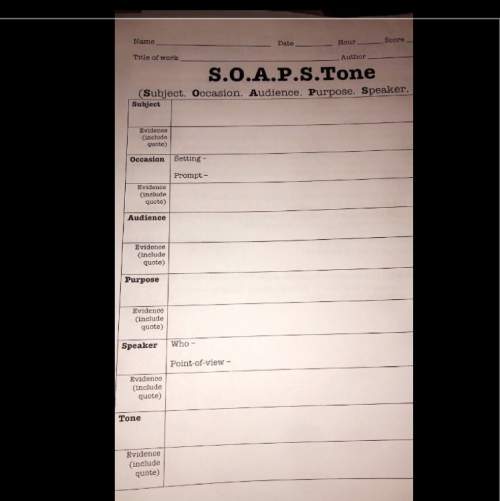
English, 04.05.2020 23:11 priceisright11401
Read the excerpt from the Supreme Court’s decision in Hirabayashi v. United States. Hirabayashi challenged the mass evacuation of Japanese Americans on the West Coast, stating that the evacuation was based solely on suspicion. Which sentence best summarizes the court’s opinion?
It is true that we might now say that there was ample time to handle the problem on the individual rather than the group basis. But military decisions must be made without the benefit of hindsight. The orders must be judged as of the date when the decision to issue them was made. To say that the military in such cases should take the time to weed out the loyal from the others would be to assume that the nation could afford to have them take the time to do it. But as the opinion of the Court makes clear, speed and dispatch may be of the essence. Certainly we cannot say that those charged with the defense of the nation should have procrastinated until investigations and hearings were completed. At that time further delay might indeed have seemed to be wholly incompatible with military responsibilities.
Since we cannot override the military judgment which lay behind these orders, it seems to me necessary to concede that the army had the power to deal temporarily with these people on a group basis. Petitioner therefore was not justified in disobeying the orders.
A.
Legal procedure and civil rights can be scrapped when the nation faces a war threat.
B.
Mass Japanese relocation was justified because there was no time to separate the guilty from the innocent.
C.
Japanese Americans who challenged the exclusion orders failed to understand the military’s dilemma.
D.
Military decisions should have been taken after the investigations were completed.

Answers: 3


Other questions on the subject: English

English, 21.06.2019 13:00, dondre54
Read this excerpt from "birdfoot's grampa.” but, leathery hands full of wet brown life, knee deep in the summer roadside grass, he just smiled and said they have places to go to too. what is the "wet brown life” in this excerpt? a the grass b the toads c the mud d the rain
Answers: 2

English, 21.06.2019 23:30, serenityarts123
1. at the conclusion of chapter 13, the monster realizes that he has none of the qualities or possessions that human beings value, and so he worries the he will be forever miserable. he says, “oh, that i had for ever remained in my native wood, nor known nor felt beyond the sensations of hunger, thirst, and heat! ” this statement recalls one made by victor frankenstein in chapter 10: “if our impulses were confined to hunger, thirst, and desire, we might nearly be free; but now we are moved by every wind that blows, and a chance word or scene that that word may convey to us.” questions: what do these two statements suggest about the impact of knowledge? how do the statements affect the way readers view the monster and victor?
Answers: 1

English, 22.06.2019 07:00, ajanchondo2004
Create a blog to convince an audience to either support or oppose a proposal to require all students to wear uniforms in school
Answers: 2

English, 22.06.2019 12:30, brockmorrison3468
First to answer will be the brainliest i need the answer asap
Answers: 2
You know the right answer?
Read the excerpt from the Supreme Court’s decision in Hirabayashi v. United States. Hirabayashi chal...
Questions in other subjects:


Mathematics, 01.06.2021 16:50




Mathematics, 01.06.2021 16:50







